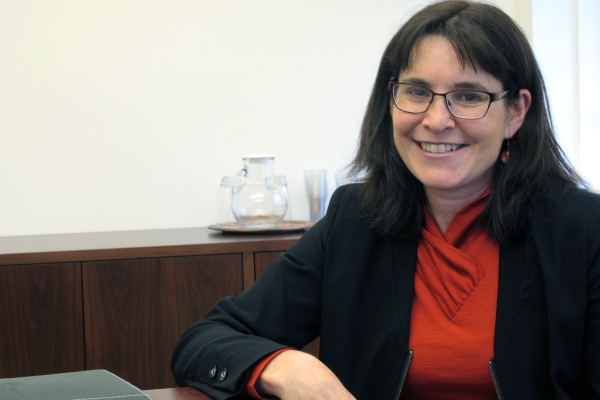Imagining the PhD of the future
October 23, 2014
Share
Andrew Stokes: What was the impetus for your trip to Queen’s?
Rachel Spronken-Smith: So far, much of the interaction between Matariki Network schools has had to do with research and undergraduate teaching. I’ve been visiting a number of Matariki members to develop the ties for greater graduate collaboration and sharing of best practices. One of the projects I’ve worked on in the past is the re-evaluating of degree outcomes at the undergraduate level. I want to ask the same question and share ideas about study done at the graduate level.

AS: The lecture you presented on Monday asked those sorts of questions. Can you tell me about what you presented?
RSS: When we think about the outcomes we expect from our doctoral students, it’s a very broad list that includes skills relating to communication, teamwork, critical thinking, ethics and problem solving, to name just a few. Despite these many expectations, we teach them in a very narrow way: usually a supervised research project. We assess them in a narrow way as well: a written thesis and in some countries an oral defence as well. For these expected skills, we have no measures to know whether we’re succeeding in developing them.
AS: How can the PhD be adapted to be more effective?
RSS: We have to recognize that people with PhDs go onto a far broader range of careers than just academia, and so in an ideal world we would tailor each PhD to the particular interests and goals of an individual. That could involve them taking a broader array of courses, doing supplementary workshops or perhaps taking part in an internship as part of their program of study. If someone is doing a PhD in health sciences but hopes to work for a business one day, then it would help to give them opportunities to learn financial management and entrepreneurship skills. Of course, those are substantial changes so it may be wishful thinking at the moment.
AS: Have you made any smaller, incremental changes at Otago?
RSS: PhD students at Otago meet regularly with supervisors to report on their research progress. For the more formal progress meetings, we’re incorporating conversations about career planning. We encourage students to consider their path after and take stock of what skills they need to cultivate to get there. When we took the idea to Otago’s department heads, we were met with enthusiasm about the change.
AS: Do you think in the future the PhD will be oriented more towards professional skill development as opposed to in-depth research on a narrow topic?
RSS: I think it will turn in that direction. Of course, students develop a lot of skills during a research project as well, though they may not always realize it. Students can struggle with knowing what they want to do at the end of their PhD and that’s often because they’re not aware of the opportunities and careers available to them. We need to link graduate students with potential employers and career advisors, people who have an understanding of the jobs available to someone with their particular training.